I’m thrilled to share the very first edition of Primer’s Product Quarterly, a new way for us to lift the lid on what we’ve been learning, thinking, and building.
At Primer, we’ve always had a big ambition: to turn payments into a powerful lever for growth. Our goal isn’t just to make them work better, but to make them work for everyone. To empower every team, in every business, to be payments experts. It’s a bold goal, and one that drives us to continually push the boundaries every day.
Until now, we’ve kept our heads down, shipping fast, solving complex problems, and staying obsessively focused on helping merchants thrive. But we know the why and the how matter just as much as the what. That’s why we’re starting to share more of the journey, the ideas, breakthroughs, and even the open questions that shape the way we build.
This is the first step in telling that story, and I couldn’t be more excited to bring you along.
Over the last quarter, we have been laser-focused on strengthening the foundations of our infrastructure, the parts you might not always see, but that power everything. At the same time, we have been building new ways to give merchants more control and flexibility than ever before, as payments should not be a black box.
Strengthening the foundations of our payments infrastructure
Every merchant I speak with, regardless of size or industry, cares most about one thing: performance. In payments, reliability isn’t a nice-to-have; it’s non-negotiable. Downtime impacts revenue, and the stakes are high.
We’re building enterprise-grade infrastructure for merchants who want to move faster, operate smarter, and scale without compromise. And when you’re operating at that level, the margin for error disappears.
That’s why we obsess over performance. In Q1, we took several steps to reinforce the fundamentals that underpin every successful payment.
Making payments faster and boosting conversions
A slow checkout can frustrate customers and cause them to abandon their purchases. A study by Akamai found that a 100-millisecond delay in load time can result in a 7% decrease in conversion rates. In other words, in payments, every millisecond counts.
That’s why we’re constantly optimizing our performance, including reducing latency so merchants can rely on Primer for fast, seamless payments at scale.
In Q1, through a set of targeted optimizations, we achieved a 33% reduction in latency within our processing engine. This means each payment on Primer is processed faster than ever before, resulting in faster checkouts for end customers.
We will continue to fine-tune our performance to ensure customers get the fastest experience every time, everywhere.
Strengthening our agnostic 3DS offering

Building an effective authentication strategy becomes increasingly complex as merchants scale across Payment Service Providers (PSPs) and markets. That’s why our agnostic 3DS solution continues to be one of the most valuable tools in a merchant’s payments stack, and why we’re doubling down on investing in its resilience and performance.
To increase redundancy, we implemented a fallback 3DS server to mitigate the impact of third-party downtime on our system.
We also built logic to monitor each 3DS server’s real-time performance and dynamically route traffic to the server that performs best. That means more reliable authentication for every payment and total peace of mind for merchants.
Delivering more payment success
Maintaining high authorization rates is crucial for merchants seeking to maximize revenue and deliver optimal customer experiences.
This quarter, we enhanced our Payments API to help merchants stay ahead of constantly evolving processor requirements. The card schemes and PSPs now require more detailed information about each payment type, particularly for transactions where card details are stored for future use.
With our update, merchants can send more granular data during transactions, proactively improving approval rates. We’ve seen this change increase authorization rates by up to 4% for certain merchants, directly translating into more captured revenue and fewer lost sales.
Expanding and deepening our range of connections

We’re focused on helping merchants build a payments stack that drives results, whether entering new markets, improving approval rates, or delivering better customer experiences.
Over the past few months, we have added several new connections that provide merchants with more control, coverage, and flexibility in executing their payments strategies.
These include:
- J.P. Morgan Chase: With JPMC, merchants benefit from localized acquiring, high approval rates, and significantly reduced transaction fees when JPMC acts as both issuer and acquirer. Primer is the first payment platform to integrate with JPMC, and GetYourGuide is already live on this connection via Primer.
- Airwallex: A key player in APAC specializing in cross-border payment solutions, Airwallex offers local acquiring capabilities in China, Hong Kong, Australia, and beyond, helping merchants improve approval rates and user experience.
- Alma: This leading buy-now-pay-later provider is available in France, Belgium, Luxembourg, the Netherlands, Spain, Italy, Germany, and Portugal. With Alma, merchants can offer flexible checkout options, splitting payments into two, three, or four installments.
We will continue to expand our connections in Q2, as we do every quarter, to provide merchants with even more choices through our marketplace.
Improving resiliency with smarter timeouts
We continuously analyze millions of data points across our platform to detect patterns and potential disruptions with third-party integrations. During this analysis, we identified that timeout events occurred with certain PSPs due to extended response times.
Acting on that insight, we increased our timeout limit from 25 to 60 seconds to accommodate these scenarios. The longer timeframe gives more time for these PSPs with long response times to respond and minimizes synchronization issues due to timeouts occurring.
At the same time, we used this opportunity to enhance the presentation of timeout-related data in Primer, providing merchants with clearer visibility into when these issues occur. This new level of transparency helps merchants analyze PSP performance and make more informed decisions about their payments strategy.
Giving merchants greater control and flexibility
Merchants don’t need a payments platform to tell them how to run their business. They need tools that adapt to their way of working.
That’s how we think about product at Primer. We’re not here to lock merchants into rigid flows; it's our merchants' payments stack. We're just building tools and frameworks to empower them to achieve their desired strategy and, ultimately, make payments as simple as possible.
In Q1, we doubled down on that promise. From smarter fallback logic to more network tokenization visibility and real-time experimentation, we shipped updates that let merchants control every flow and outcome.
Allowing for more control when using Fallbacks
Primer’s Fallbacks are a proven revenue recovery engine. In the past year alone, merchants using Fallbacks recovered over $35 million.
Primer’s mission has always been to turn payments from a cost center into a growth driver. And with Fallbacks, it’s happening. Merchants are now recovering more revenue each month than they pay for Primer. We’re not just covering costs; we’re delivering a return on investment (ROI).
That makes Primer a no-brainer.
We originally designed Fallbacks for speed and simplicity: merchants could switch them on with a couple of clicks, and they’d trigger automatically based on a predefined set of decline conditions managed by Primer. Merchants didn’t need to think about anything else, drastically reducing the barrier to entry. This approach has been successful, with approximately 95% of merchants with two or more PSPs utilizing Fallbacks on Primer today.
However, as merchants scale and refine their strategies, they have told us they want more control.
Enter Fallback Profiles.
These new profiles allow merchants to choose from different sets of predefined decline reasons, giving them more control over how fallback logic is applied without introducing additional operational or technical complexity. We work closely with each merchant to match the right profile to their goals, striking a balance between recovery performance and risk tolerance.
And it’s already paying off. Some merchants are now seeing a 3x increase in the number of payments recovered using Fallbacks, further boosting their revenue and the ROI they realize using Primer.
Already using Primer? First off, nice work 😉. Now, contact your customer success manager to guide you through the details.
Expanding our network tokenization capabilities
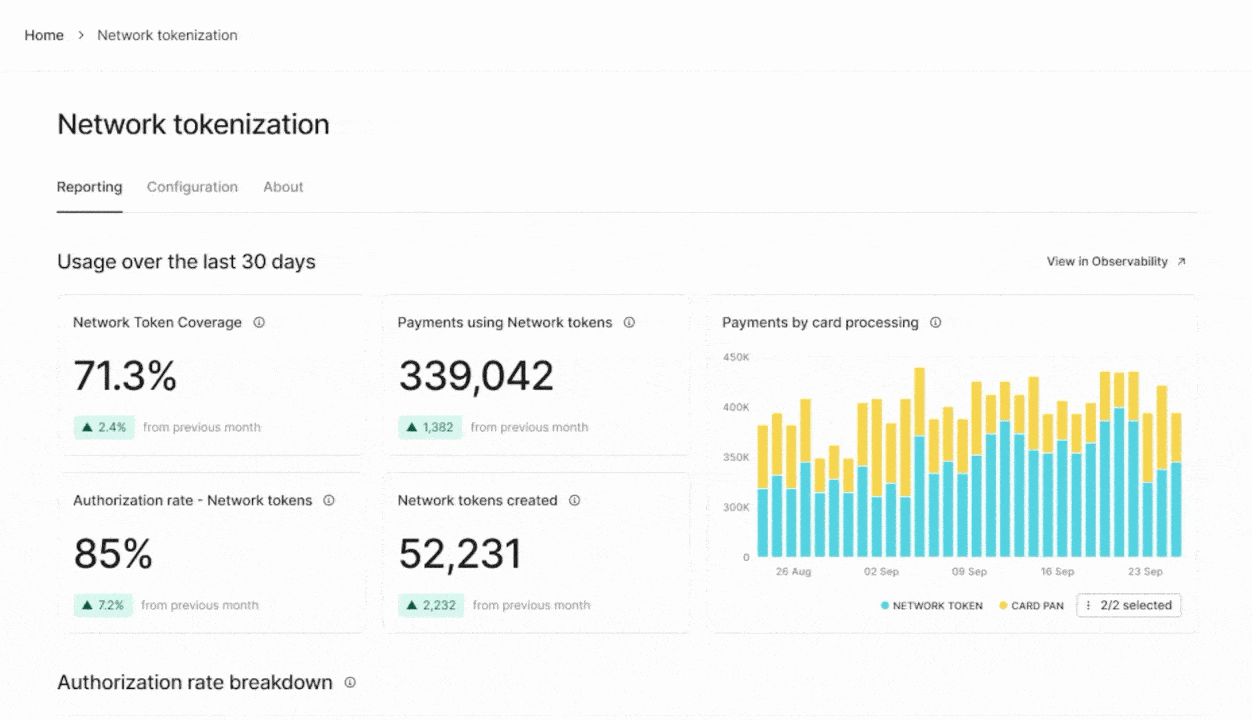
Merchant demand for network tokenization continues to rise, and Primer is leading the way with a Visa and Mastercard-certified, fully agnostic, no-code solution that works seamlessly across providers. Instead of paying for network tokens per PSP you use, consolidate your network tokens into a single vault that can be used across all PSPs.
Merchants using network tokenization with Primer have seen as much as a 5% increase in their authorization rates with specific processors.
In Q1, we expanded support by rolling out network tokenization for Worldpay, allowing merchants to leverage tokens across a broader set of processors. Support for Braintree, Stripe, and Nuvei is just around the corner, bringing even more flexibility to merchants who want to benefit from network tokenization without being locked into a single provider.
We’re also launching our new Network Tokenization Performance Dashboard, which will give merchants complete visibility into network token performance compared to PAN transactions across PSPs and networks. This is the first tool of its kind, designed to help merchants make smarter decisions and prevent network token performance from becoming a black box.
Powering deeper analysis and experimentation

Experimentation is one of the most effective ways to optimize payments. We provide merchants with the tools to test, learn, and adapt, enabling them to move beyond simply accepting payments to actively improving their success rates.
And now, running experiments is easier than ever with Primer.
In Q1, we introduced new metadata-based filtering capabilities that work hand-in-hand with our Split Utility. Combined, these capabilities give merchants the power to run A/B tests directly within Primer without writing a single line of code.
Whether comparing processor performance, fallback behaviour, or routing strategies, merchants can now experiment end-to-end with ease.
This same functionality can be used to analyze performance in other ways based on the merchant’s needs; it really depends on the merchant's creativity. For example, with just a few clicks, merchants can break down results by storefront or region, generate custom charts, and quickly identify where to focus their optimization efforts.
It’s all part of our goal to make payments more transparent, measurable, and effective so merchants can move faster, backed by real data.
Reducing friction with Express Checkout
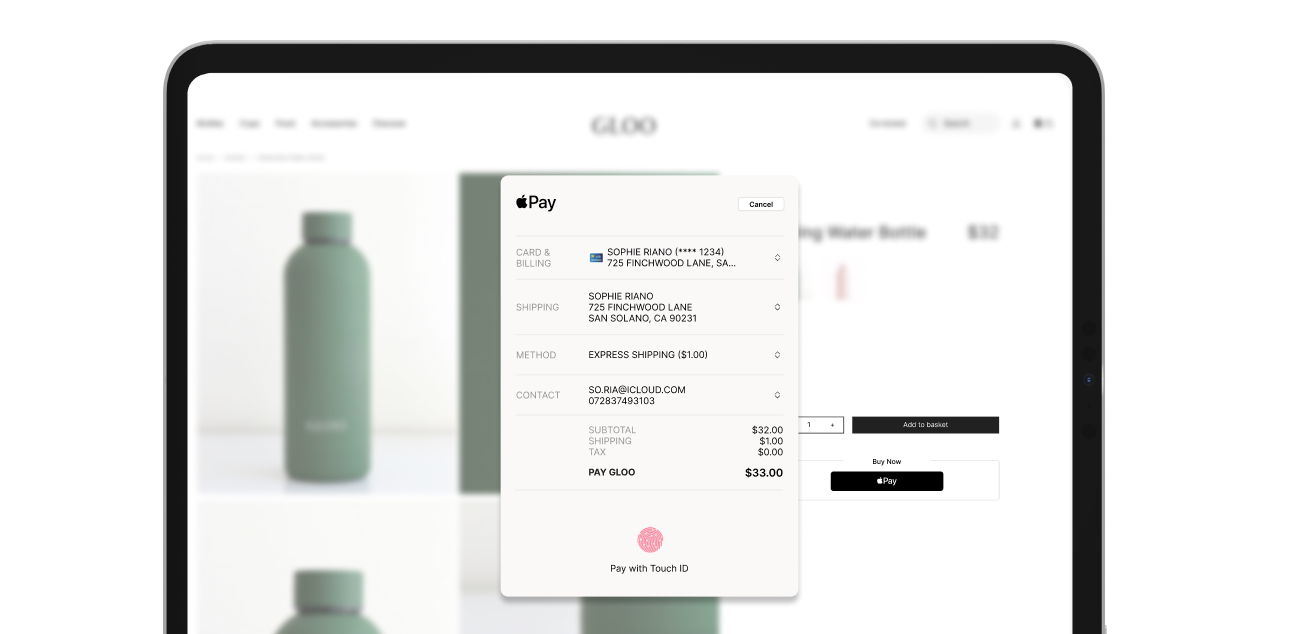
18% of customers abandon during checkout because the process is too long or complicated. That’s a massive amount of lost revenue, and a big, yet fixable problem, for merchants.
Express Checkout provides customers with a faster and more seamless payment experience. By presenting available Express Checkout option eariler in the buying journey, we can help merchants eliminate unnecessary friction in the customer journey by removing an entire step from the process and increasing the likelihood of conversion.
Primer now supports Express Checkout for Apple Pay and Google Pay out of the box, enabling merchants to offer familiar, one-tap payment methods that customers trust. And because Primer is agnostic, Express Checkout works across providers, allowing merchants to use it with any underlying PSP.
Merchants can be creative in designing high-converting express checkout flows that skip the traditional checkout journey and can even be completed on a product display page.
Based on merchant feedback, we are also enabling merchants to dynamically surface shipping methods based on the customer’s address, ensuring a smooth experience while maintaining business logic.
Setting new standards
These updates are part of a bigger picture: building the most reliable, flexible, open, and performant payments infrastructure in the world. For merchants, that means fewer dropped checkouts, higher approval rates, and faster payments.
And we’re just getting started.
See you next quarter!

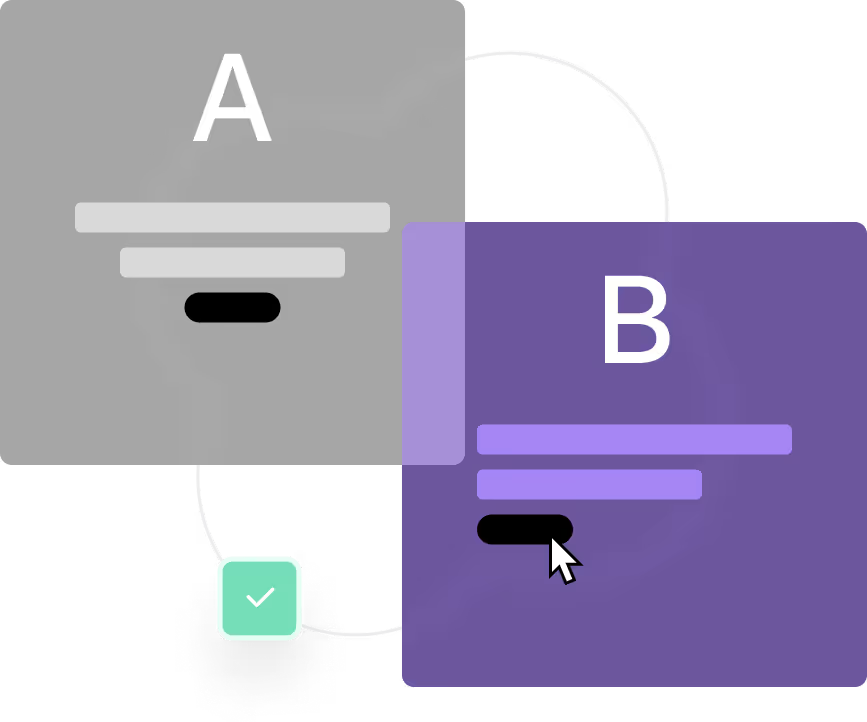
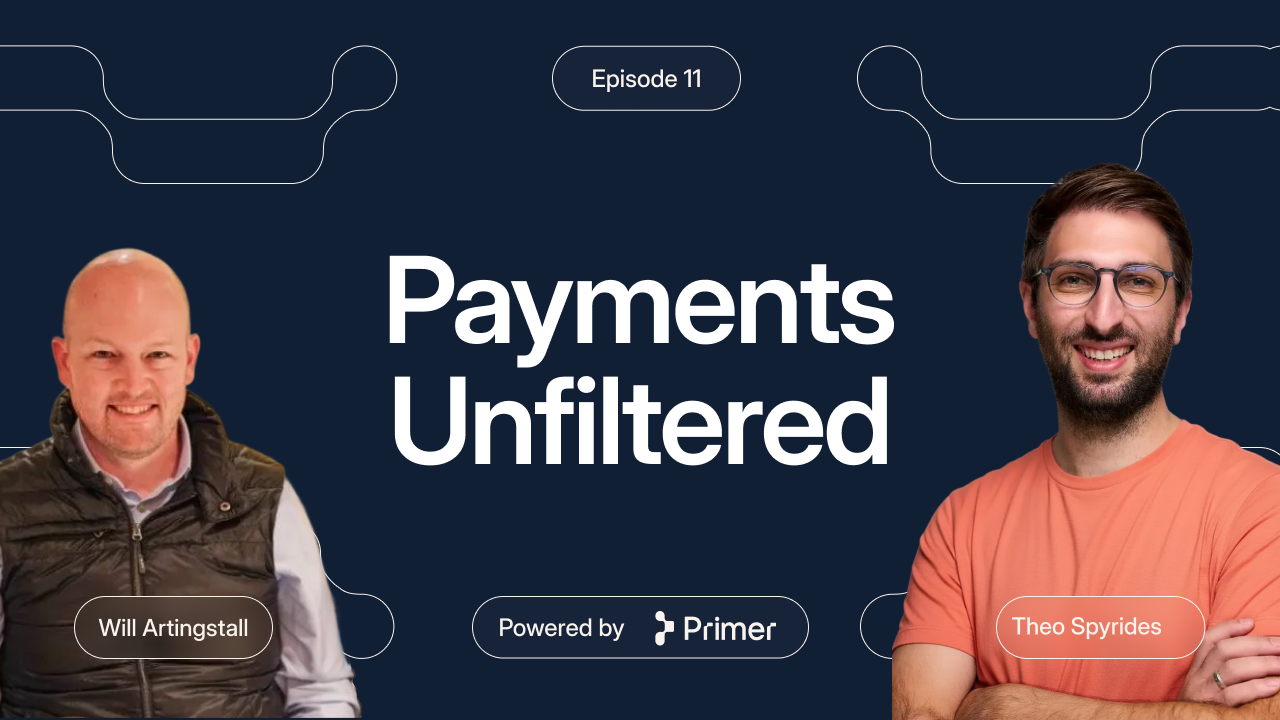
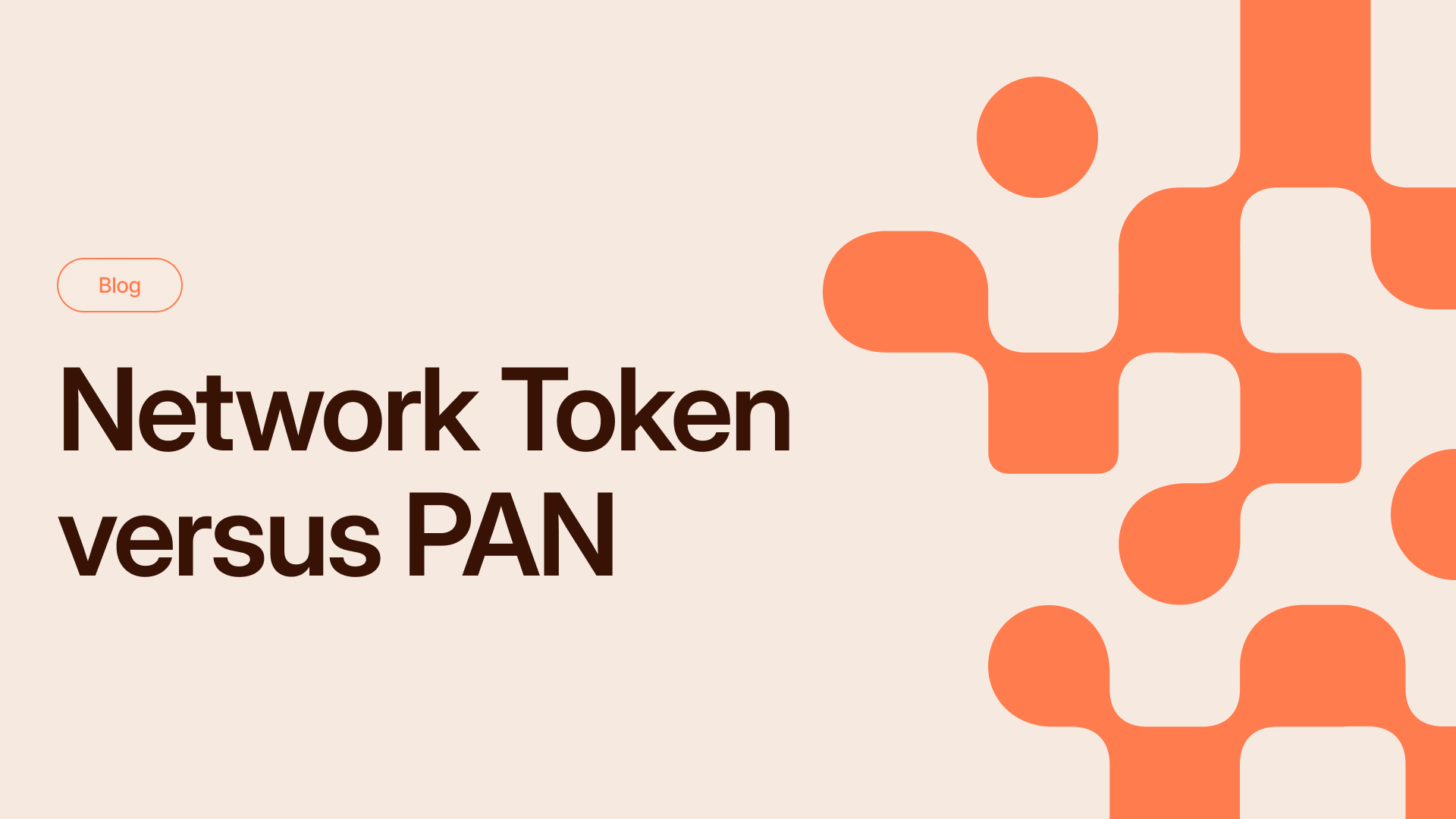
.png)
